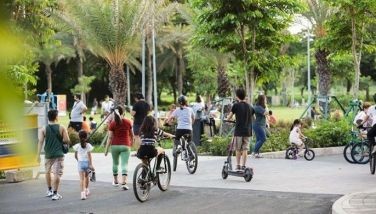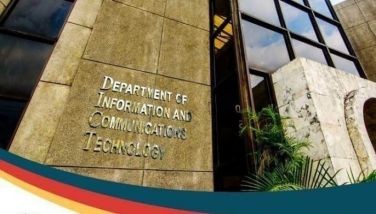Mobile E-Learning Hub seen to augment ALS
CEBU, Philippines — Department of Education (DepEd)-7 regional director Salustiano Jimenez believes that the Mobile E-Learning Hub will augment the existing programs of the department like the Alternative Learning System (ALS) program.
Through the Mobile E-Learning Hub learners in the rural areas will get to experience and be exposed to facilities leading to the development of 21st century skills and more. Jimenez welcomed the official launching of the program in Cebu on Tuesday, August 29, with no less than Vice President and DepEd Secretary Sara Duterte as guest of honor.
The Mobile E-Learning Hub aims to promote Information and Communications Technology-related skills training, online education, government services and further opportunities for employment and literacy to upskill and empower more people, especially in marginalized communities.
DepEd has partnered with PLDT, Smart Communications, Inc. and the Armed Forces of the Philippines in empowering more communities via donation of School-in-a-Bag to AFP’s Mobile E-Learning Hub.
According to the AFP, the Mobile E-Learning Hub project is a community support initiative of the Visayas Command, Armed Forces of the Philippines (VISCOM, AFP), through the 3rd Civil Relations Group, CRSAFP to address education and employment challenges faced by the marginalized communities, especially in the remote areas of the Province of Cebu.
In collaboration with the initial partner government agencies such as the DeEd, DICT, TESDA and DOST and non-government organizations, the project strategically employs Information and Communications Technology (ICT) and e-learning tools to extend educational opportunities and skills development to the less fortunate members of underprivileged communities.
It is also designed as intervention to augment and complement with the existing government educational system in targeted areas. Simultaneously, the e-learning hub can act as a support system for learners with educational gaps, enabling them to cope-up and stay aligned with the standard curriculum taught in schools, short courses and skills training will be conducted, significantly enhancing employment opportunities and prospects for individuals and jobseekers within the communities.
“The hub stands as an ongoing prototype project, with the potential to become a model for similar initiatives in other regions grappling with comparable challenges. Once successfully implemented, the project will be expanded to necessary areas nationwide,” the AFP said.
It added that educators and operators from partner government agencies will actively take part in the operationalization of the e-learning hub and a specialized training program will be introduced to equip them with the necessary skills for effective teaching and proficient management of the e-learning system.
Also, in times of calamities and disaster, the e-learning hub can be converted as primary Mobile Command Center, establishing communication line and report situation in the area.
The Mobile E-Learning Hub will be activated and positioned in close proximity the municipal hall or schools within the designated target communities in the Province of Cebu where Community Support Programs of AFP are actively conducted.
For its initial phase, the learning hub will be stationed near Cebu City to undergo pilot testing, to evaluate its functionality and efficiency before being introduced to remote or far flung areas of the province.
Initially, the overall estimated cost of the Mobile E-Learning Hub amounts to around P1.3 million from aggregating resources such as container van, trailer, fit-out, computer sets and other amenities.
This prototype of the mobile e-learning hub was fabricated by the Philippine Army's 53 Engineer Brigade, transforming a shipping container into a hub for learning.
The Mobile E-Learning Hub is equip with learning portals provided by government agencies to give learners access to educational content and variety of educational materials.
Notably, the hub extends its utility by granting users access to various government services, enabling online processing and application submissions.
The e-learning hub serves as an invaluable resource, granting free access to internet connectivity.
It has self-sustaining electrical system powered by solar panels, making it highly versatile and adaptable, especially in situations where access to electricity might be limited or disrupted due to emergencies and disasters.
With its technology infrastructure and connectivity, the hub can transform into an Operations Command Center in times of calamities and disasters. It can serve as a central hub for gathering, processing, and distributing essential information to affected communities, relief agencies, and authorities.— /FPL (FREEMAN)
- Latest
























